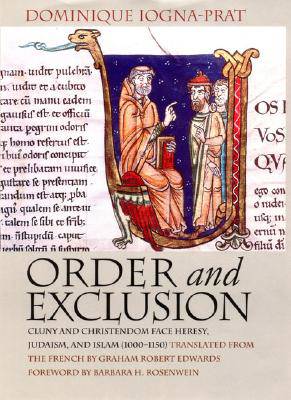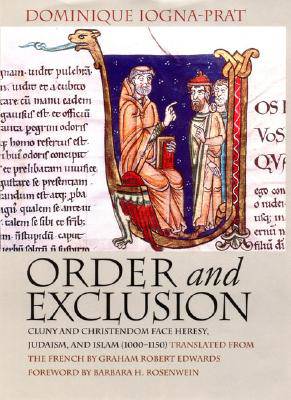
- Retrait gratuit dans votre magasin Club
- 7.000.000 titres dans notre catalogue
- Payer en toute sécurité
- Toujours un magasin près de chez vous
- Retrait gratuit dans votre magasin Club
- 7.000.0000 titres dans notre catalogue
- Payer en toute sécurité
- Toujours un magasin près de chez vous
Order and Exclusion
Cluny and Christendom Face Heresy, Judaism, and Islam (1000-1150)
Dominique Iogna-PratDescription
Order and Exclusion is a rare and magnificent book of medieval history with clear relevance to today's headlines. Through the lens of the polemics of Peter the Venerable, abbot of Cluny, Dominique Iogna-Prat examines the process by which christianity transformed itself into Christendom, a powerful spiritual, social, and political system with pretensions to universality. Iogna-Prat's close examination of a set of writings central to the history of Catholicism resolves into a deeply troubling study of the origins of attitudes that continue to shape world events. Iogna-Prat writes that "versions of fundamentalism nourished by the soil of an often terrible common history" show that Christianity, Judaism, and Islam have all been capable of intolerance.Peter the Venerable's writings had a far-reaching impact: the powerful network of Clunaic houses expanded from the founding of the original monastery of Cluny to dominate Christendom by the twelfth century. This Christendom, Iogna-Prat demonstrates, defined itself in part through its increasingly bitter struggles against its perceived enemies both within and without. Peter the Venerable's all-pervasive logic pitted the "order" of the monastery and its hierarchical society against all those--heretics, Jews, Muslims, lepers--outside its bounds. In his proclamations against Jews and Muslims, Peter devised a Christian anthropology: in his view, to be non-Christian was to be non-human. The power of the Church came at a great and lasting price.
Spécifications
Parties prenantes
- Auteur(s) :
- Traducteur(s):
- Editeur:
Contenu
- Nombre de pages :
- 432
- Langue:
- Anglais
- Collection :
Caractéristiques
- EAN:
- 9780801437083
- Date de parution :
- 15-02-03
- Format:
- Livre relié
- Format numérique:
- Genaaid
- Dimensions :
- 166 mm x 241 mm
- Poids :
- 875 g

Les avis
Nous publions uniquement les avis qui respectent les conditions requises. Consultez nos conditions pour les avis.






